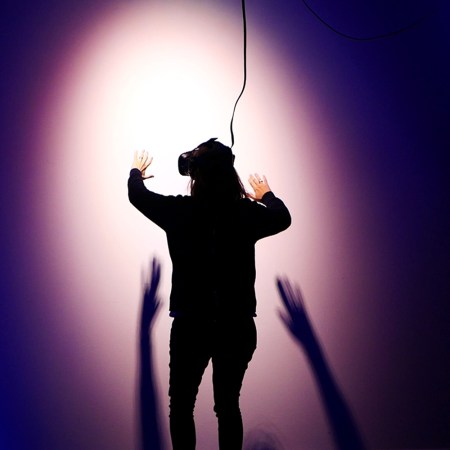There’s an ever-widening stream of evidence suggesting TikTok is bad for its users, supported by the near-daily stories about kids narrowly skirting death while trying to film their take on some magnet-as-tongue-piercing nonsense. But after a video of a stranger making a woman cry on the streets of New York went viral this week, new questions are being raised regarding the negative effects of TikTok on the general public—and whether the video app is contributing to an already unsafe environment for women who are just trying to exist outside without being assaulted.
While the original video now appears to have been deleted, versions of it are still available, showing dancer and content creator Huon Archer approaching a group of young people in Times Square. Archer taps a person in a black spaghetti strap dress on their shoulder and extends his hand for a high-five. The person looks shaken up and runs to a girl in a green dress, who turns out to be their sister, for support.
Commenters were initially filled with scorn for the person in the black dress, whom they felt was crying over a friendly and innocent gesture. Thousands of comments poured in about how this person was being dramatic, possibly racist (Archer is Black and the person in the dress is white) and unreasonable. To provide insight, the sister, who goes by Ailsa Jane on TikTok, made a video explaining that her sibling has autism and a condition called Contamination OCD, which causes sufferers to feel “burning sensations” when touched. Her sister’s reaction would have been the same no matter who approached them, she explained, though her sister does have “trauma responses” to men in particular.
Restaurant Servers Are Getting Harassed in Brand New Ways, Thanks to the Pandemic
Customers are asking servers to remove their masks in a nasty new trend dubbed “maskual harassment”Regardless of a person’s neurodivergence or trauma history, few people actually want to be touched by unknowns on the street — and in Times Square, no less. *shivers* But especially for women and those socialized as female, the sudden approach of any man they don’t know can trigger fight or flight. As of now, the “approaching random people” tag has 4 million views on TikTok — and with the swell of videos prompting users to invade the personal space of strangers for the sake of clicks and follows, the concern that the app gives men and boys license to disregard the rules of consent gains increasing legitimacy. Though the goading-strangers-for-laughs genre may not be new, TikTok has made it so we now have to contend with millions of little Billy Eichners and Eric Andres everyday, in the form of 8th grade boys and creepy randos on the sidewalk.
“People’s brains are so broken now that they’re arguing that existing in a public place means you are implicitly agreeing to be touched and filmed by strangers,” one Twitter user wrote in reaction to Archer’s viral video.
Some worry that the uptick in this style of video correlates to increased incidents of sexual harassment. In the U.K., i newspaper reported that a recent survey of 2,000 people found 44% felt “public sexual harassment was happening more often” than in the previous five years. And in May 2022, the U.K.’s Office for National Statistics reported that one in two women between 16 and 34 years of age “experienced one form of harassment in the previous 12 months,” with 38% having experienced “catcalls, whistles, unwanted sexual comments or jokes, and 25% having felt that they were being followed.”
In truth, Archer’s take on the approaching strangers trend was about as tame as it gets, and though he hasn’t yet commented on the situation, it’s pretty clear from the video that he didn’t intend any harm. Still, it seems TikTokers everywhere need to be reminded: people on the street aren’t props for your 10-second cinematic masterpieces. And magnets are not food.
Thanks for reading InsideHook. Sign up for our daily newsletter and be in the know.



















